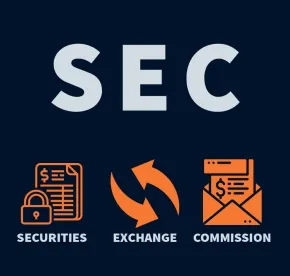The U.S. Court of Appeals for the Second Circuit has asked the U.S. Securities and Exchange Commission (SEC) to share its views on the issue of whether syndicated term loans are securities for purposes of the Securities Act of 1933, as amended (the “Securities Act”), under the four-prong “family resemblance” test enumerated in Reves v. Ernst & Young, 494 U.S. 56 (1990).
The syndicated term loans at issue (“Term Loan Bs”) are tranches of senior loan facilities held by institutional non-bank lenders, such as collateralized loan obligation vehicles (CLOs), hedge funds, private equity funds, mutual funds and insurance companies. For over 30 years of existence on the market, Term Loan Bs have never been treated as securities, and neither the SEC nor other federal regulators have suggested that Term Loan Bs be regulated as such. Unlike high-yield bonds that are marketed to the general public, are highly tradable, and are treated as securities, Term Loan Bs are syndicated by the arranging bank to a limited number of sophisticated lenders that typically rely on their own due diligence of the borrower; trading of Term Loan Bs is likewise limited and restricted to certain “eligible lenders” defined in the loan agreement, and assignment of a syndicate member’s interest to a new lender oftentimes requires borrower consent. Term Loan Bs are generally secured and have a floating interest rate, whereas high-yield bonds are generally unsecured (or rank junior to Term Loan Bs) and have a fixed coupon that provides a definite investment income stream to the investors, typically with a higher yield than Term Loan Bs.
The four factors of the Reves “family resemblance” test are: (1) “the motivations that would prompt a reasonable seller and buyer to enter into” the transaction—that is, whether the transaction has a “commercial” or “investment” purpose, (2) “the ‘plan of distribution’ of the instrument”—that is, “whether it is an instrument in which there is ‘common trading for speculation or investments,’” (3) “the reasonable expectations of the investing public,” and (4) whether “the existence of another regulatory scheme” makes application of the Securities Act unnecessary.
Applying these factors, the U.S. District Court for the Southern District of New York held in May 2020 that Term Loan Bs at issue were analogous to a category of loans issued by banks for commercial purposes that are not securities under Reves. In particular, the District Court found that three of the four factors weighed in favor of classifying Term Loan Bs as “not securities.” First, the plan of distribution for the term loans was relatively narrow and not designed for the loan participations to be sold to the general public, with a minimum participation amount of $1 million. Second, the language in the governing loan documents would lead a reasonable investor to conclude that the term loans constituted loans and not securities. Third, the sale of loan participations to “sophisticated purchasers” was subject to certain policy guidelines from the Office of the Comptroller of the Currency addressing the sale of loan participations, and thus the term loans were subject to an existing regulatory scheme. The court also found that the remaining Reves factor (i.e., the motivation of the parties to enter in the transaction was for commercial or investment purposes) did not weigh strongly in either direction.
On appeal, the three-judge panel of the Second Circuit Court of Appeals re-examined the application of the Reves factors to Term Loan Bs at question and, following the oral arguments in March 2023, ultimately solicited the SEC’s views on the issue.
The deadline for SEC comment, initially set by the court as April 13, 2023, was extended to June 27, 2023, at the SEC’s unopposed motion, to allow it more time to consult with other federal agencies and counsel for the parties before filing its response. While the SEC’s guidance and the Second Circuit decision is expected to be limited to the facts of the case, a holding subjecting Term Loan Bs to securities regulation would have a profound effect on the $1.4 trillion market for syndicated term loans and on financial institutions at a time of limited liquidity. Among other consequences, subjecting syndicated term loans to securities regulation would impose substantial compliance costs and administrative burdens on loan market participants that would have to comply with securities laws at the state and federal level as well as the rules of securities industry self-regulatory organizations. These additional costs and administrative burdens would likely be passed on to borrowers in the form of higher pricing and narrower, less efficient access to capital. Treating syndicated term loans as securities would also create regulatory uncertainties, including with respect to banks’ ability to hold CLOs, as banks are currently limited in owning and trading funds that own securities by the “covered fund” provision of the Volcker Rule. A holding that Term Loan Bs are securities would have other implications and may have a disruptive effect on origination and trading of syndicated loans that have become an important source of capital in the modern economy.







 />i
/>i
